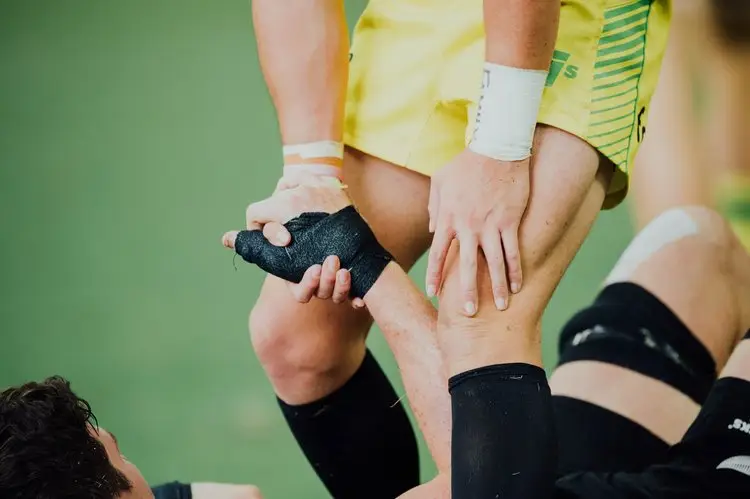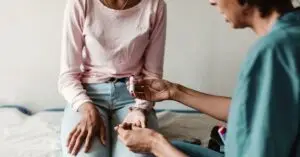There are many well-known principles when it comes to managing soft tissue injuries, with the acronym RICE being the most known and used. However, there is more required to assist with managing and rehabilitating injuries, as these common acronyms focus only on management after the initial injury happens.
But what about the stages that occur after the initial stages of swelling occur?
Recently, there were two acronyms created to enhance soft tissue recovery and research has shown these acronyms are better to follow. They are known as PEACE and LOVE. These 2 acronyms assist in providing management for soft tissue injuries from immediate care onwards.
PEACE is immediately applied following a soft tissue injury, which stands for;
- Protect – unload/restrict movement for 1-3 days, minimise rest, and use as a guide to gradually return to loading.
- Elevate – elevate injured limb higher than the heart to assist with removing swelling from the injured area.
- Avoid anti-inflammatories – anti-inflammatories can negatively impact the healing process long-term.
- Compression – can help with reducing and managing swelling within the injured area.
- Educate – utilising your physiotherapist to educate you or your family on your recovery and when it’s best to return to activities.
After the first couple of days following injury, LOVE is used. It stands for;
- Load – gradually return to normal activities under the guidance of your physiotherapist to promote healing of the tissues. Gradual and purposeful load can actually assist the healing process.
- Optimism – remaining optimistic can improve chances of a great and speedy recovery.
- Vascularisation – using cardiovascular/aerobic exercise can improve function, work status, and reduce need for pain medications.
- Exercise – reduced the risk of recurring injuries, whilst restoring mobility, strength, and body awareness.
With any soft tissue injury, it is recommended that you see a physiotherapist to assist with managing your recovery. If you need help with deciding which would be best to manage your injury, contact our lovely team, who can recommend and guide you through the appropriate management for your soft tissue injuries.
We are always here for you and to help you succeed.





